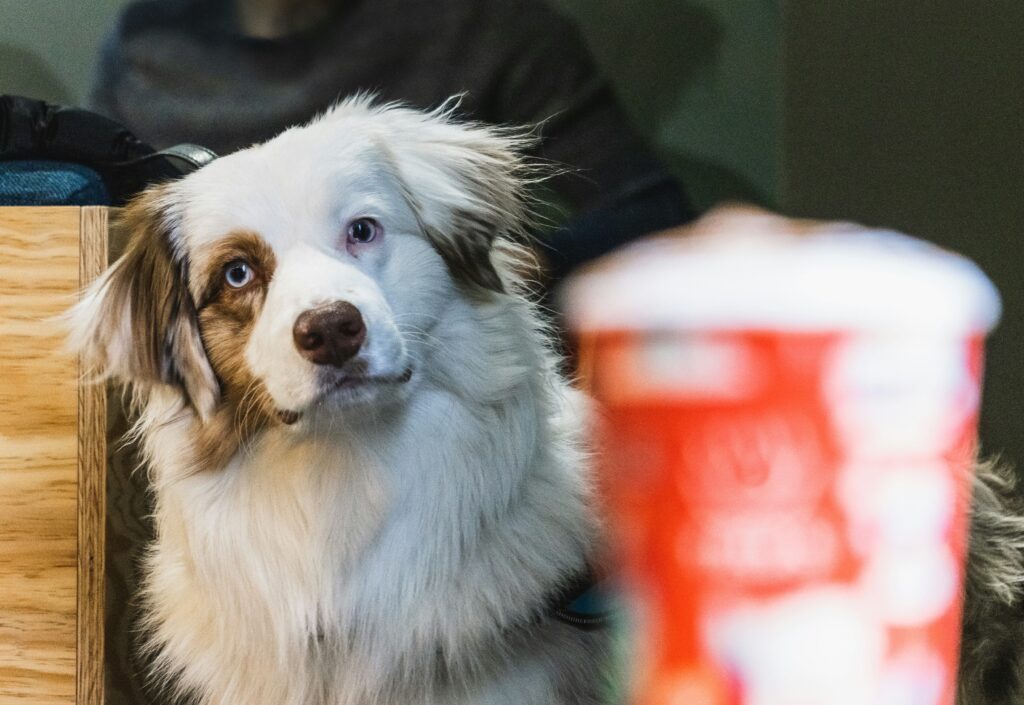Unlocking Problem-Solving Skills in Dogs
Have you ever watched your dog figure out how to open a cabinet, slide a latch, or maneuver a toy to release a treat? These moments reveal just how sharp our furry companions can be. Beyond obedience training and learned commands, dogs have an impressive ability to solve problems—an intelligence that showcases their adaptability and creativity. In this blog, we’ll explore how dogs demonstrate problem-solving skills, ways you can test your pup’s smarts at home, and activities that help nurture their natural curiosity.
What Does Problem-Solving Look Like in Dogs?
Problem-solving in dogs isn’t about solving math equations or puzzles on paper—it’s about navigating real-world challenges. Here are some everyday examples:
-
Figuring out how to reach a toy or treat – Dogs often move objects, paw at barriers, or even enlist human help to get what they want.
-
Escape artistry – Some clever pups can unlatch gates or open doors when motivated enough.
-
Navigating new environments – Dogs often learn how to move around obstacles, climb stairs, or find their way back home.
-
Communication strategies – A dog that nudges your hand for pets or sits by the door when it needs to go out is demonstrating a solution to a need.
These actions reveal that dogs can assess a situation, experiment with solutions, and adjust their approach based on the results.
Breeds Known for Problem-Solving Abilities
While all dogs have unique strengths, certain breeds are especially celebrated for their problem-solving skills:
-
Border Collies – Masters of both obedience and creative thinking.
-
German Shepherds – Known for their adaptability in working roles like police and service work.
-
Poodles – Not only intelligent but also highly versatile problem-solvers.
-
Terriers – Determined little thinkers, often skilled at figuring out how to get into places they shouldn’t!
-
Huskies – Famous escape artists who use ingenuity to outwit fences and locks.
Breed plays a role, but so does environment, training, and individual personality.
 Fun Ways to Test Your Dog’s Problem-Solving Skills
Fun Ways to Test Your Dog’s Problem-Solving Skills
Want to see just how sharp your dog is? Try these simple experiments at home:
-
The Towel Test
-
Place a towel gently over your dog’s head.
-
See how long it takes them to free themselves.
-
A quick shake or pawing shows strong problem-solving skills.
-
-
The Cup Game
-
Hide a treat under one of three cups.
-
Shuffle the cups and encourage your dog to find the treat.
-
Dogs that watch carefully and choose correctly are demonstrating memory and strategy.
-
-
Barrier Challenges
-
Put a toy or treat behind a low barrier.
-
Watch how your pup tries to retrieve it—do they go around, over, or attempt to move the barrier?
-
-
Puzzle Toys
-
Provide interactive feeders or puzzle toys.
-
Dogs that quickly learn how to release treats are strong thinkers.
-
How to Encourage Problem-Solving in Your Dog
Like any skill, problem-solving can be nurtured with the right environment and challenges. Here’s how you can help:
-
Offer puzzle toys regularly – These challenge your pup’s mind while rewarding persistence.
-
Rotate challenges – Keep activities fresh to prevent boredom.
-
Encourage exploration – Let your dog sniff, paw, and investigate safely.
-
Use positive reinforcement – Reward effort and creativity, not just success.
-
Teach “thinking games” – Hide-and-seek with toys or treats is both fun and mentally stimulating.
 Why Problem-Solving Matters
Why Problem-Solving Matters
Problem-solving isn’t just an entertaining party trick—it plays an essential role in your dog’s overall well-being:
-
Reduces boredom – Prevents destructive behaviors caused by lack of mental stimulation.
-
Builds confidence – Dogs feel accomplished when they “figure things out.”
-
Strengthens the bond – Working through challenges together deepens your relationship.
-
Supports aging dogs – Keeps senior pups mentally sharp as they grow older.
Conclusion
Dogs are far more than furry companions—they are thinkers, problem-solvers, and natural innovators. By offering opportunities to test and develop these skills, you not only keep your pup entertained but also help them thrive. Next time your dog paws at a puzzle toy or invents a new way to get your attention, take a moment to appreciate their intelligence—it’s one of the many things that makes dogs such extraordinary partners in our lives.

